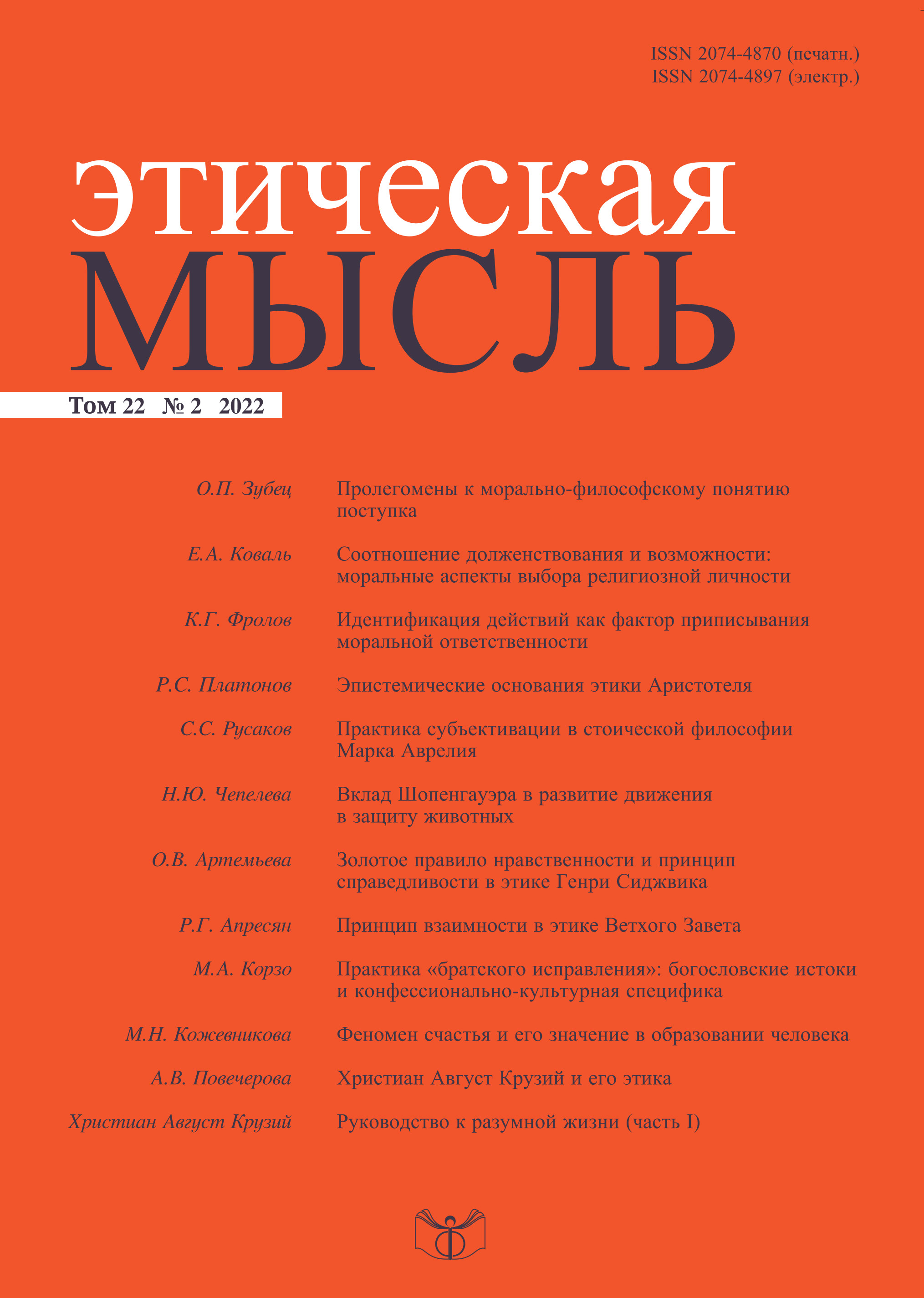The Practice of ‘Fraternal Correction’: Theological Grounds and Confessional-Cultural Specificity
DOI:
https://doi.org/10.21146/2074-4870-2022-22-2-116-127Keywords:
fraternal correction, charity, obligation, Augustine, Alexander of Hales, Thomas Aquinas, William of Ockham, J. Gerson, J. Calvin, moral and edifying literature, “censura morum”, denunciationAbstract
Fraternal correction (“correctio/correptio fraterna”), or love-motivated edification of the sinner, aimed at his repentance and correction based on the gospel fragment Matt. 18:15–17, was a part of everyday practices in early Christian and monastic communities; later it received theological interpretation and justification in the writings of Augustine, Alexander of Hales, Thomas Aquinas, William of Ockham, Jean Gerson, of early Modern scholastics. The theological and canonical thought of different epochs turned to this topic often in connection with specific socio-political circumstances or events of church life. Despite the diversity of points of view, fraternal correction was understood as a positive prescription, for the fulfillment of which certain conditions are necessary: their absence makes it possible to refrain from edifying the sinner; in some situations, it is even morally unacceptable to resort to this procedure. In the literature for the laity, a positive prescription for fraternal correction has appeared since the 13th century; over the next centuries, this prescription becomes more and more categorical, in the early Modern times, it turns into an unconditional duty: failure to fulfill this duty was regarded as a sin and was subject to confession. The procedure described in Matt. 18:15–17 also becomes one of the forms of horizontal moral reform in early modern societies, is used by different Protestant denominations to justify the practice of censorship of morals and the activities of church courts (consistories), is also used to give legitimacy to certain situations of denunciation in both Catholic and Protestant communities.









